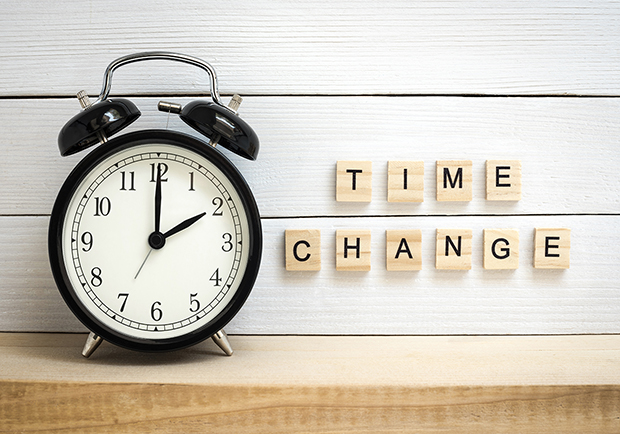Tips to Adapt to Wintertime
Posted by Ana Maria Lajusticia USA on
The time change is approaching, the day when our clocks will go back one hour during the early hours. This may worry you because it is usually associated with tiredness, poor performance, anxiety, sleep disturbances, mood and even appetite. That is why we are going to give you some tips to adapt to the winter schedule and to prepare yourself during these weeks and thus be able to cope with it in the best way when it happens, without it giving you "headaches".

Why does the time change affect us?
A time change of 1 to 3 hours causes a moderate change in the functional status of the body, a mild disorder that does not pose major problems until the circadian rhythms are regulated again and, therefore, the adaptation is usually progressive but quite fast in many people.
When this delay occurs in the clock it gets dark earlier, the body begins to secrete melatonin (the hormone that regulates the states of wakefulness and sleep depending on the presence or absence of light) a while before than usual. This is the reason why the time change is always made during the night of a weekend, to minimize the effects of drowsiness that can occur in those hours that are still active.
For this we must add that there are people more sensitive than others (especially children and those over 50 years of age since they are more sensitive to hormonal changes and tend to follow stricter schedules, so special attention should be paid to these cases.
What will we notice? The first-day stress may appear and during the first week compensatory reactions of physiological adaptation may occur. Sometimes, we may need up to 15 days to fully adapt, at which time the functioning of the main body systems is gradually restored, and balance is achieved again.
To speed up the process, it is essential to establish fixed times to sleep and wake up, continue with our routine, and perform the same physical exercise as usual (first thing in the day); also avoid napping during those days and choose light foods low in saturated fats/simple sugars for dinner. If you drink caffeine, let it be in the morning and try, even so, to reduce its consumption.
Other considerations
It is possible that because of these imbalances emotional hunger appears, which consists of eating based on how we feel, instead of based on what our body needs. It usually appears suddenly in situations of stress or irritability, such as the one we are discussing, and is characterized by wanting sweets, snacks, or foods of low nutritional quality (milk chocolate, potato chips, sweets, cold cuts...). It does not have to disappear with the ingestion and usually causes us a feeling of guilt. To help you combat it and feel less out of place during the day, taking Tryptophan with Magnesium and Vit can help a lot. B6 in the mornings. Expand the information in this article.
If, in addition, you have problems falling asleep or sleeping continuously because of the time change, it will also help you a lot after dinner to take 1 or 2 tablets of Tryptophan with Melatonin, Magnesium and Vit. B6 by Ana Maria Lajusticia®, a nutritional supplement that helps emotional balance and regulates the body's internal clock, facilitating night rest. And don't forget to always avoid bright lights from electronic devices for a while before bed!
We hope that all these tips will be very useful for you in the face of the time change. Keep in mind that you still have some time to prepare... this time it will affect you as little as possible!!
